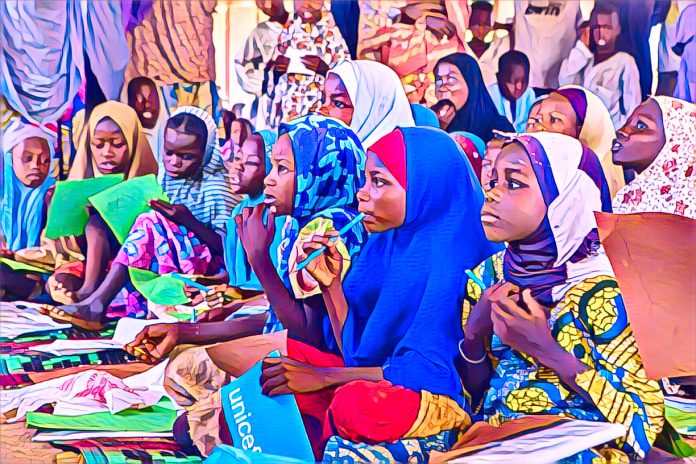KEY POINTS
- 4.9 million children in Nigeria need urgent humanitarian assistance.
- 18.3 million children are out of school, worsening learning poverty.
- UNICEF calls for prioritizing education, health, and child protection.
UNICEF’s 2024 State of Nigeria’s Children report states that about 4.9 million children in Nigeria need urgent humanitarian aid.
With one in two children living in poverty and over half of the population—110 million—under the age of 18, the report emphasizes the grave difficulties facing the nation’s children.
Millions of children face poverty and lack basic vaccinations
According to the research, the neonatal mortality rate in Nigeria is still 41 per 1,000 live births, and 2.1 million children have never had any immunizations. In addition, 40% of children under five suffer from stunting, and 70% of homes do not have access to safe drinking water.
In terms of the risk that climate change poses to children worldwide, Nigeria came in second.
With 18.3 million out-of-school children, including 10.2 million primary school-age children and 8.1 million secondary school-age children, Nigeria is still experiencing a serious education crisis.
According to businessday, the teacher-student ratio has gotten worse due to the lack of over 200,000 qualified teachers, and 73% of kids between the ages of 7 and 14 find it difficult to read simple sentences and 75% find it difficult to complete simple math problems.
Ninety percent of children under five have been exposed to violence in some capacity, which is concerning.
Cristian Munduate, a UNICEF representative, underlined the critical need for more funding for child safety, education, and health. “Nigeria’s prosperity should begin with its youth. Programs that address violence, health, education, and malnutrition must be given top priority, she stated, calling on stakeholders to pay attention to the needs and rights of children who are at risk.
Urgent call for investments in child health and education
According to Atiku Bagudu, minister of budget and economic planning, the report will direct sectoral and governmental planning to enhance the wellbeing of children.
“This national document offers up-to-date information for tackling the numerous difficulties Nigerian children encounter. He stated that the administration is still dedicated to enhancing the lives of all children and adolescents and lowering child poverty.
The CEO of the Nigerian Economic Summit Group, Tayo Aduloju, called the situation an existential crisis and warned that the nation’s human capital and future economic competitiveness are at risk due to violence, stunting, and inadequate education.
He promised to keep working with the private sector to address the problems that Nigerian children face.
As a call to action, UNICEF’s report highlights how crucial it is to solve these issues if Nigeria is to advance in the future.



